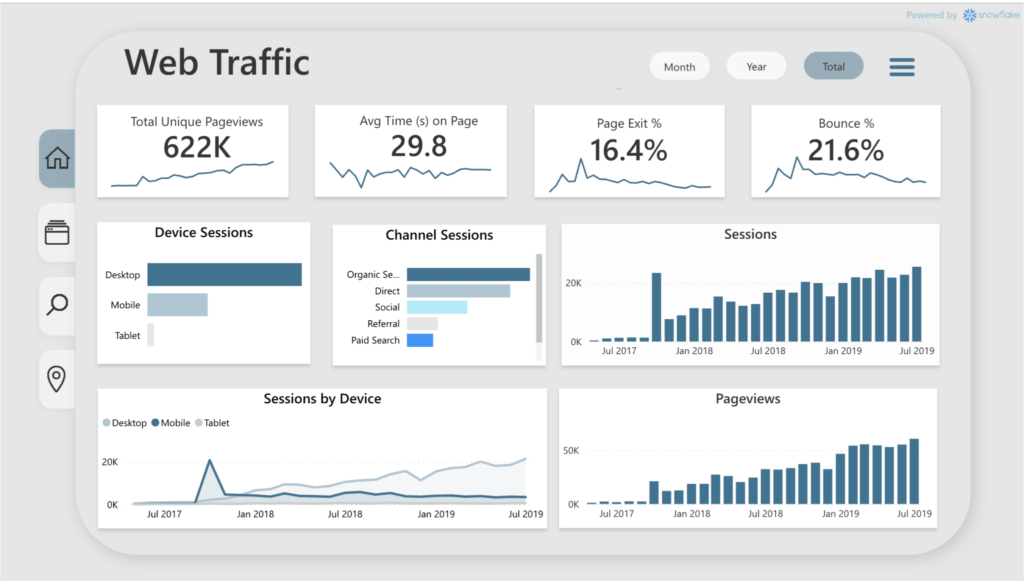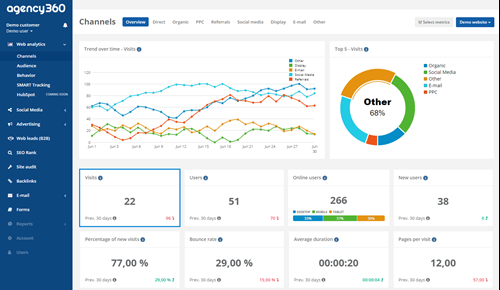Success in social media marketing isn’t just about likes and followers—it’s about achieving real business goals. But how do you measure whether your efforts are paying off? The key lies in tracking the right metrics and analyzing performance to optimize your strategy.
1. Define Your Social Media Goals
Before measuring success, you need to establish clear goals. Are you looking to increase brand awareness, drive website traffic, or generate leads? Setting objectives helps determine which metrics matter most.
2. Track Engagement Metrics
Engagement shows how well your audience interacts with your content. Key engagement metrics include:
- Likes and Shares – Indicate content popularity
- Comments and Replies – Measure audience interaction
- Click-Through Rate (CTR) – Shows how many people clicked on your post or ad
Engaging posts not only attract attention but also improve your visibility. If you want to increase engagement, check out our Social Media Management services.
3. Monitor Follower Growth
While gaining followers is important, quality matters more than quantity. Analyze whether your audience is growing steadily and if your content is attracting the right people.
4. Measure Website Traffic from Social Media
Driving traffic to your website is one of the main goals of social media marketing. Use tools like Google Analytics to track visitors coming from platforms like Facebook, Instagram, and Twitter. You can also check bounce rates to see if users find your website valuable after clicking.
Need help with SEO and website optimization? Visit our SEO Services page.

5. Analyze Conversion Rates
Conversions are actions that users take after engaging with your content. These could be:
- Signing up for a newsletter
- Downloading a free resource
- Purchasing a product
Tracking conversions helps you understand which content leads to real business growth. If your conversion rates are low, optimizing your Google Ads strategy can help.

6. Check Social Media ROI (Return on Investment)
To calculate ROI, compare the money spent on social media marketing (ads, tools, content creation) to the revenue generated. A positive ROI means your strategy is working, while a negative ROI suggests adjustments are needed.
7. Pay Attention to Brand Mentions and Sentiment
Social listening tools like Hootsuite and Brandwatch help track mentions of your brand. Analyzing sentiment (positive, neutral, or negative) allows you to manage reputation and address customer concerns.
Final Thoughts
Measuring success in social media marketing requires a mix of engagement, website traffic, conversions, and ROI tracking. By analyzing these metrics, you can refine your strategy and achieve better results.
Want expert guidance? Contact Social Media Max for professional social media marketing solutions tailored to your business!

